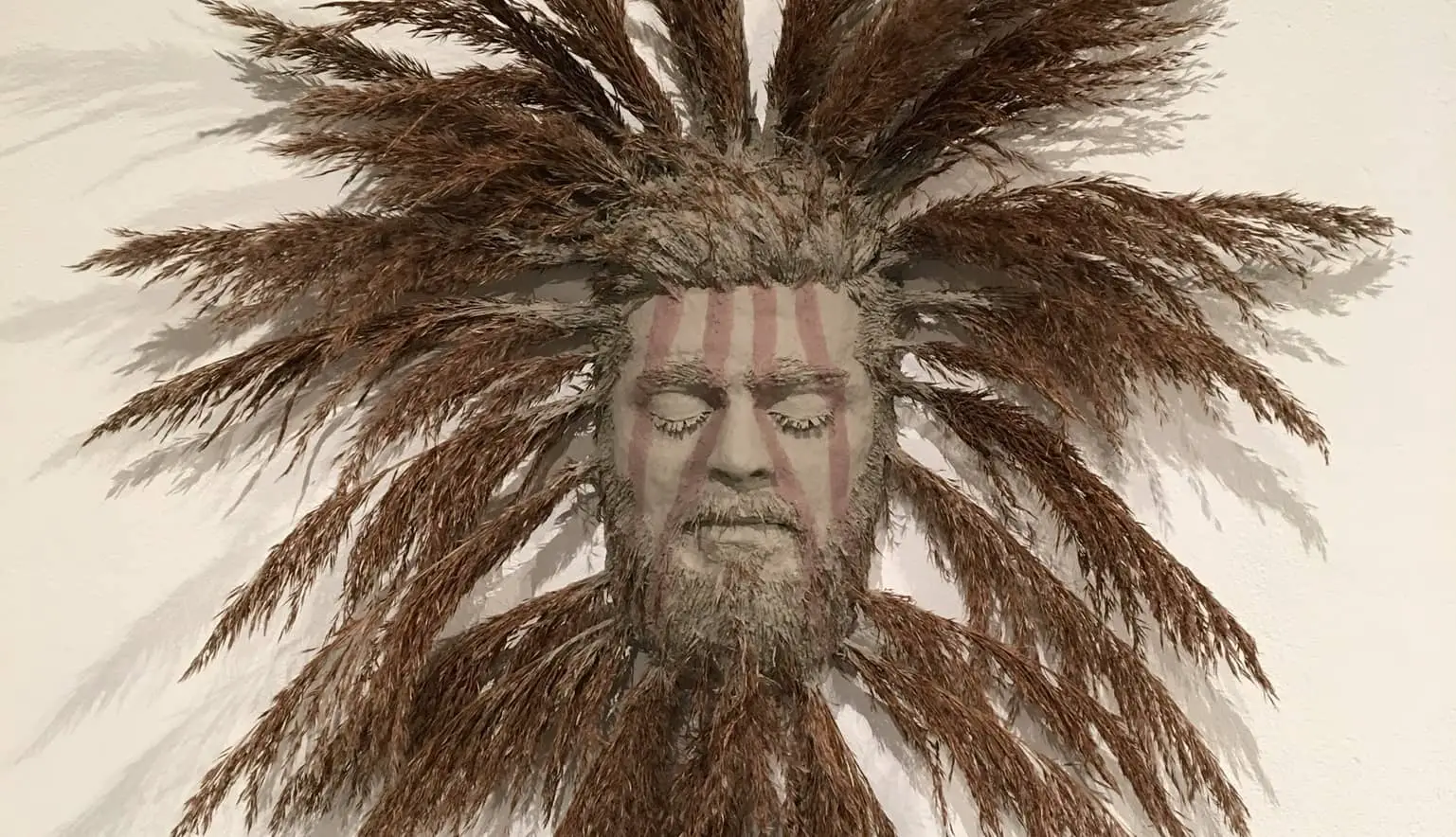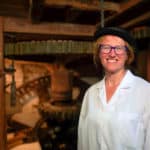Happy St Arwald’s Day to all News OnTheWight readers.
King Arwald was the last pagan king who ruled the Isle of Wight in the seventh century and died defending the Island from merciless Anglo-Saxon barbarian, Caedwalla, a barbarian king of Wessex, making it the last place to be converted to Christianity in England.
Every year Pagans celebrate his life on St Arwald’s Day, 22nd April.
Brothers canonised as St Arwald
You can find out more about Arwald on the Isle of Wight Hidden Heroes Website, but in summary, Arwald’s two brothers fled the Island across the Solent to the New Forest, but were eventually betrayed and captured by Caedwalla. He forced them at sword-point to convert to Christianity, before being murdered.
They were described as ‘the first fruits’ of the massacre of the population of the Island, and later canonised collectively as St Arwald.
The making of Arwald
King Arwald was part of a major exhibition at Quay Arts in Newport back in 2018 for IW Hidden Heroes. Nigel George from public artists, Ecclestone George, was commissioned to create an artwork in response to Arwald.

Working with The Maker’s Guild in Portsmouth, he created one of our all time favourite pieces of art.
A poem for Arwald
News OnTheWight reader, Mark Francis, shared this sonnet with us back in 2010, which makes a very fitting tribute to Arwald.
Tell me, where does Arwald lie?
Is he in the Bloodstone Wood,
Bending bluebells with a sigh,
Buried in blackthorn and monks hood?
In bosky dells and gathered gloom –
A whisper through the silent shade,
Amongst the harts horn for his tomb,
In the oak woods peaceful glade.
Or does he ride to gabrel hounds,
High above the Shalcombe Downs,
On thunderclouds upon the storm,
By power of oak and ash and thorn.
When squirrels shiver in their fur
Comes Arwald to Whitgarasburgh.
Find out more about King Arwald by visiting the Isle of Wight Hidden Heroes Website.
Image: © Nigel George





